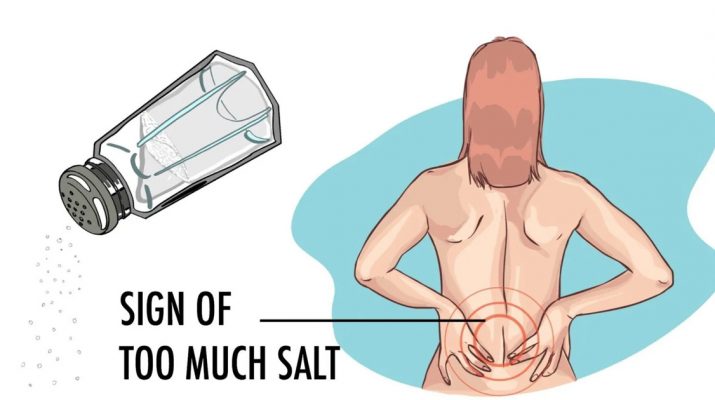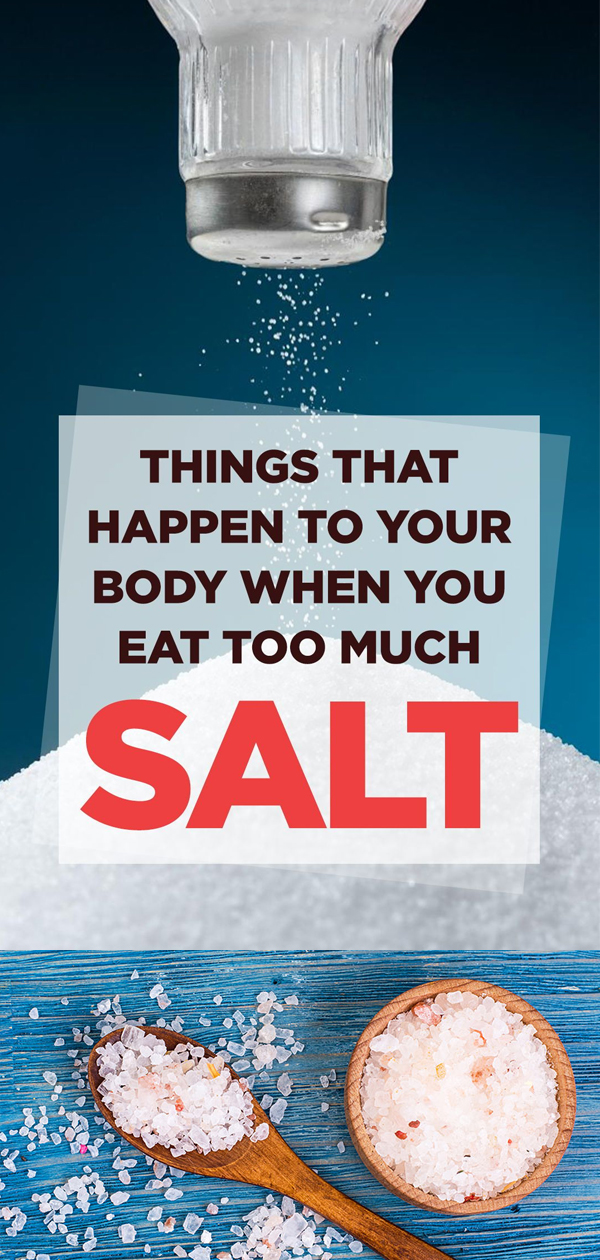Salt makes things taste a lot better, but eating too much of it can have disastrous effects on your health. Food companies have spent billions figuring out what keeps us coming back for more, and unfortunately, they found that salt will increase their profits while keeping us addicted, sick, and unhealthy.
The American Heart Association (AHA) recommends eating between 1,500 to 2,400 mg of salt per day. With that said, Americans eat an average of 3,400 mg per day, most of which comes from processed foods. This further exacerbates risks for health problems, because processed foods have very little nutrients, a ton of calories, and a few too many pinches of salt.
To illustrate the dangers of high-sodium diets, a study published in The New England Journal of Medicine found that there are an estimated 1.65 million deaths worldwide linked to high sodium consumption annually. In the U.S., 10 percent of all heart-related deaths are caused by too much sodium. While most people don’t die from eating too much salt, it can still pose other health risks.
Below, we’ll go over what can happen if you consume too much salt and how to limit your intake of added salt as well.
Here’S What Happens When You Eat Too Much Salt:
1. You Start To Have Kidney Problems.
A high-sodium diet increases your risk of developing kidney stones because it increases the amount of calcium in your urine, which has been found to be a key factor in the formation of the stones. As you consume more salt, the body holds on to more water to try to dilute the sodium. Your body normally removes excess fluid by filtering blood through your kidneys to draw water out of your blood.
However, when you have a diet high in sodium, the kidneys will remove less water, and therefore, your blood pressure increases. This can cause kidney failure because, as your blood pressure rises to accommodate the excess salt, it puts tremendous strain on arteries leading to the kidneys.
2. Salt Can Increase Blood Pressure.
As we briefly mentioned above, people who consume a lot of salt in their diet have a greater risk of developing high blood pressure. This happens because salt makes you retain water, which makes your heart pump harder. This puts a lot of strain and pressure on your organs, which can lead to heart disease, strokes, dementia, cardiovascular disease, and other serious problems.
3. You Feel Bloated.
When you consume too much sodium, you retain water, as we mentioned. Most people think of bloating in their abdomen only; however, sodium can cause you to hold onto water throughout your body. Called edema, you can even develop swelling in the feet, legs, and hands due to excess salt consumption.
While one night of eating too much salt won’t usually cause severe swelling, over time, fluid retention caused by a high-salt diet can certainly lead to chronic bloating.
4. Salt Can Cause Brain Fog.
Many things can cause cognitive impairment, including excess salt. One study published in the Neurobiology of Aging in 2011 found that older people who consumed high amounts of salt and led a sedentary lifestyle had more cognitive decline. Brain fog is usually a sign of inflammation, which can be caused by excess salt. Also, people who consume a lot of salt usually don’t drink enough water, and dehydration can cause cognitive disturbances as well.
5. It Can Lead To Osteoporosis.
Normally people don’t think of this when it comes to high-sodium diets, but your body loses calcium when you urinate, and the more salt you consume, the more calcium you lose. When you don’t have enough calcium in your blood, it can get leeched out of you bones, which can cause osteoporosis.
Limiting Intake Of Salt
– Avoid or severely cut down on processed foods and take out. Many of these products contain way too much salt and don’t have quality nutrients.
– Make sure you get plenty of potassium in your diet. Potassium can counteract the effects of excess salt and lower blood pressure. Ideally, you should aim for 3,500 – 4,700 mg per day. Healthy sources include bananas, sweet potatoes, spinach, avocados, and tomatoes.
– Prepare more meals at home, and add salt-free seasonings to your food. If you look in your local grocery store, you’ll find plenty of choices for seasonings that don’t necessarily include salt.
– Buy fresh foods such as fruits, vegetables, and meats, and limit consumption of canned foods with added salt. If you do buy canned food, try to find salt-free versions.


